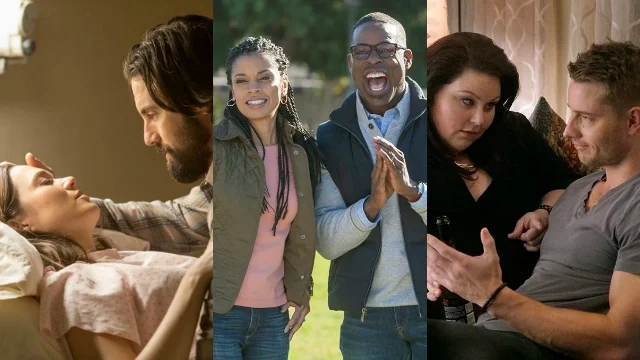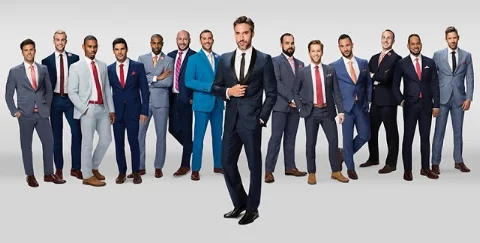This Is--or Isn't--Us
I resisted NBC's new family drama This Is Us throughout the autumn, turning my nose up at the network's seeming attempt to replace Parenthood, thinking it was going to be just too mainstream for my liking. But now, after binging the first ten episodes, I'm circling back to that idea of what 'mainstream' means and what it can accomplish in television.
My dad and I were philosophizing about narratives in the car the other day, as we do in my family (it's in my blood, damnit!), and I felt it important to reiterate to him what's been swirling in my head for a while: I believe in the power of mass media to change hearts and minds. He brought up the very good point that yes, narratives consumed en masse are powerful, especially for the wide-reaching beast that is television, but often the cultural shifts that result come in waves that are clearer in hindsight. It may not be one or even a few groundbreaking TV shows that actively change people's minds, but if we look in the rearview mirror we can see the patterns forming from all of our cultural products of an age. This thought was a great reminder for me, who tends to be critical of and dissect shows and movies as individual entities, and who judges whether their individual merits affords them less or more impact in the public sphere. Yet, I'm thinking now that what constitutes the mainstream stories we devour on TV may occupy an even more powerful place than we often notice in this realm, due to their subtle treatment of progressive ideas.
Network dramas, due to their advertising structure, have to appeal to mass audiences, and so it is often a critique that these shows are not niche enough and therefore not bold enough in their storytelling. Insecure on HBO may only get a couple hundred thousand viewers on Sundays but those viewers, who pay for their subscription, are probably ready to engage with complex story lines that resonate with them. The TV landscape is definitely becoming more courageous in its storytelling in an attempt to reach splintering audience segmentations, but for the most part, boldness in TV is still found on cable, not network.

This Is Us wants us to see that families come in all shapes and sizes
I'm therefore pleasantly surprised with This Is Us, which, like ABC's Shondaland shows, is looking at diversity through an interesting lens. For Shonda Rhimes's shows, diversity is just a given that is seamlessly woven into the plot lines (aka, inclusion), but This Is Us actively comments on it. The story of the black adoptive son into a white family chugs along side by side with one of a gay father figure and another of an obese character struggling with her weight, and while some critics have condemned the show's treatment of progressivism as too safe, others have argued that tackling these issues on the small screen is crucial when our country is so divided after the election. It's definitely not perfect, but I applaud This Is Us for using its intersectional stories not as a one-sided soapbox, but as a way to let good storytelling do the legwork and then using the platform as an opportunity to examine bias. Mainstream audiences are thus sucked into the drama of a story, with an added benefit of receiving subliminal messaging-like advocacy for championing diversity. This subliminal messaging, in my opinion, is not of the brainwashing, I-may-have-just-seen-a-cheeseburger-and-now-will-buy-one variety, but rather an opportunity to actively and yet safely question your own preconceived notions about certain identities. Fiction is always good for empathy; even better when that fiction reaches millions. Mainstream television can champion empathy as a storytelling tool to push the boundaries of viewers' receptiveness to new portrayals of American life. If it's done in a safe but subtly challenging way, like in This Is Us, it has the potential to change hearts and minds without alienating audiences. After all, for example, I fully maintain that the LGBT acceptance movement of the last 20 years partly has TV shows to thank, among them Queer as Folk, The L Word, and The Real World.
There's definitely a deeper discussion about the tools of activism to be hashed out, for example whether progress is made through slow and steady steps or through radical disobedience. I'll leave that to another blog post, perhaps about the new Harry Potter installment, Fantastic Beasts and Where to Find Them, which echoes these dueling strategies of resistance movements in the worlds of Wizards vs Muggles. For now, I'll continue watching NBC in the hopes that the progressivism stays just sneakily mainstream enough to make some resonating statements.




